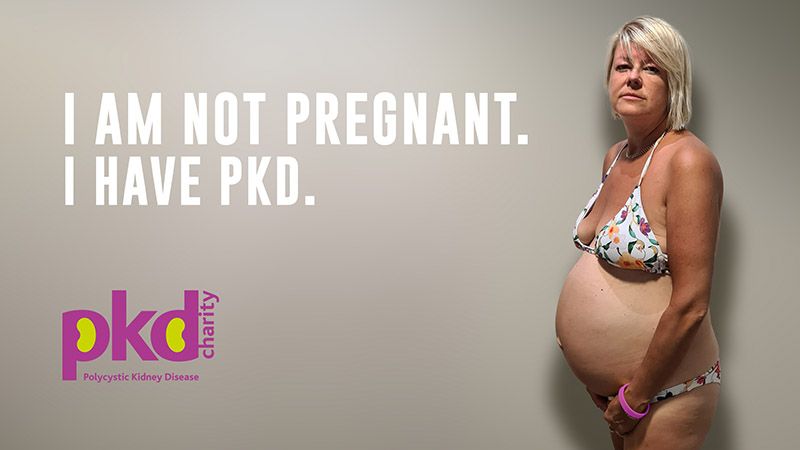
"People think I'm pregnant, but I've got an incurable disease"
In the 12 years since 48-year-old Katie was diagnosed with PKD, her kidneys have grown so large she is frequently asked "When's it due?" or "Boy or girl?" by people who innocently assume that she’s pregnant. Which is why the mum of 2 from Swansea has taken the brave step to share the naked truth about this distressing and lesser-known symptom of the disease.
Sadly, her story is an all too familiar one.
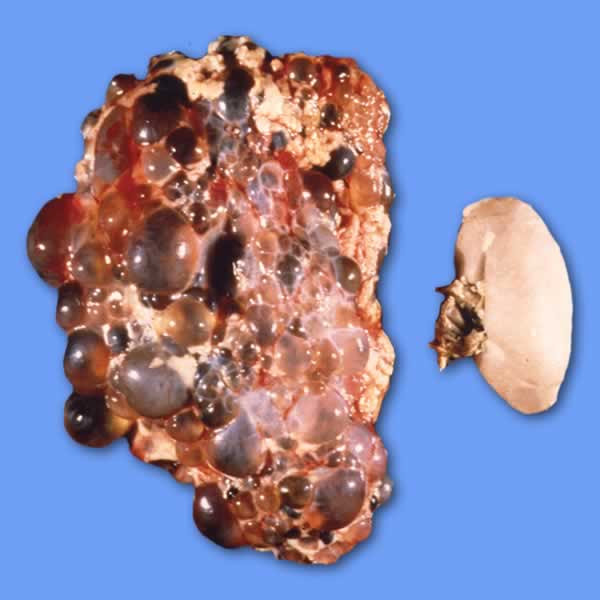
PKD kidney v normal kidney
PKD causes uncontrolled growth of cysts, primarily in the kidneys, which cause them to enlarge and change shape over time, often resulting in patients developing what’s known as a ‘PKD belly’. A healthy kidney is usually about the size of a fist, whilst PKD kidneys can grow to the size of a rugby ball - in fact, the largest and heaviest reported PKD kidneys are those of Windsor dad, Warren Higgs, whose kidneys weighed a record-breaking 35kg (77lb) when removed in 2021.
As a result, many women and even men with a PKD belly are often thought to be ‘pregnant’. Not only can this cause embarrassment and body image issues, but due to the kidneys taking up so much room in the abdomen many patients experience constant pain, shortness of breath and even mobility problems.
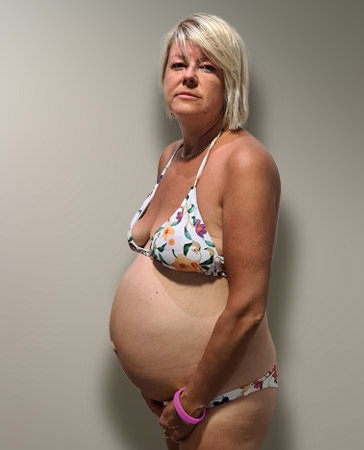
A brave Katie, determined to raise awareness
Katie's kidneys have gradually grown larger since learning at the age of 35 that she’s inherited PKD, news she "Took lightly” at first - Although she was aware that her mum and grandmother had kidney problems, the severity of the disease didn’t quite sink in. "I was thinking, what does the doctor mean?... I’m young, I’m invincible, I’ll live forever”, she says of her initial reaction.
“And then I went home, searched Google and saw that there is no cure and nothing to stop the inevitable”. PKD cysts slowly replace much of the kidneys, reducing kidney function and typically leading to kidney failure by middle age.
Katie’s kidney function is now only 9% with dialysis or a transplant the only treatment options available to her. She’s currently waiting to receive a working AV fistula - a connection that’s made between an artery and a vein for dialysis access – which so far has been unsuccessful despite 3 attempts at the surgical procedure.
Her large PKD belly is an unavoidable daily reminder of the disease, and cause of great discomfort and anxiety. Meeting people who think she’s pregnant gets her down. In fact she’s grown so weary of explaining herself, she now sometimes finds it easier to 'pretend to be pregnant'.
"To save their embarrassment and not wanting to hit them with the terrible news that I have an incurable disease, I often just go along with it and let them go on their way", explains katie.
Thankfully, husband Richard hopes to be able to give his wife a second chance by donating a kidney. The couple met 18 years ago in her native Estonia where Welshman Richard was on a friend’s stag night. After a 12-month, long distance romance Katie left her family, friends and job in a newspaper to move to Swansea; a bold move for the 31-year-old who barely spoke English at the time!
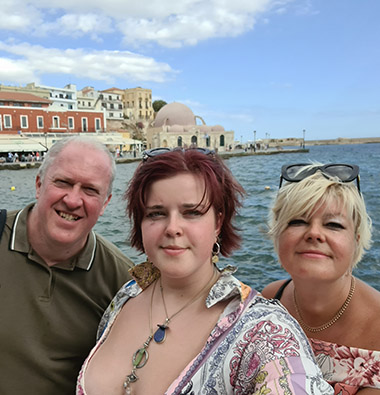
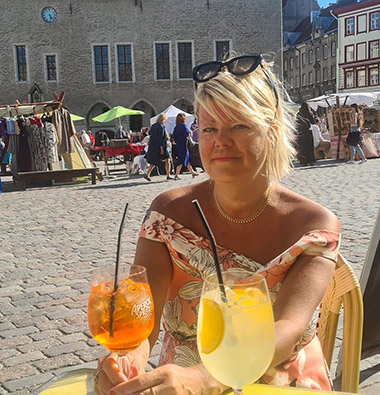
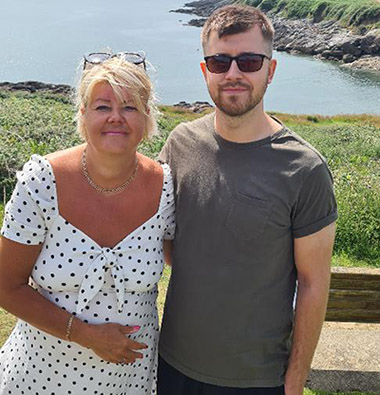
Katie, Richard, and children Oli and Karl
Although Richard is not a direct match for her, the National Living Donor Kidney Sharing Scheme, offers a chance to swap or exchange donor kidneys with another donor-recipient pair in the same situation. Later this year, Katie and Richard will be entered into the Living Donor Kidney Matching Run, which is performed 4 times a year to identify paired/pooled exchanges.
She’s scared to get her hopes up however. Due to having very high antibody levels, she’s told that there’s only a 4% chance of getting a kidney that will match.
For now, she’s in limbo, often feeling very lonely and frustrated. She worries about her children, especially 27-year-old son Karl, who has also been diagnosed with PKD. "He's young. He's trying to live life. But how do you live with that realisation? It is really hard. It is hard on all my family”. Her daughter Oli who is 16 will be tested for the disease when she's older.
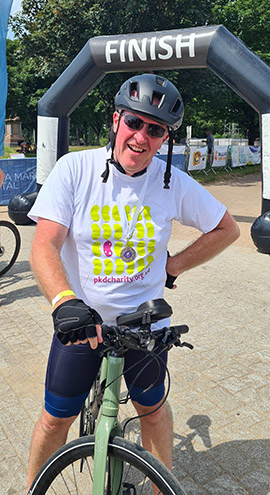
Richard, fundraising for PKD
Despite her illness and worries for the future, Katie does strive to have a positive attitude. "I think life is like a coin. What kind of life you have depends which side of the coin you want to see. There's nothing I can do to change the fact that I have PKD, but I can be grateful for the good things in my life, and maybe play a part in helping others” she says.
In sharing her story, she hopes to improve understanding of the tremendous physical and psychological struggles that come with PKD, and also help raise funds for research, which is critical to improving the lives of PKD patients and their families.
Kidney research is significantly underfunded - in the UK, less than 1% of all health research funding goes to kidney research, and a fraction of that amount goes towards PKD research specifically. Katie and her family want to do all they can to change this - to raise funds for the PKD Charity Richard recently did a Gower bike ride and will be cycling from Cardiff to Swansea on 4 September.
ADPKD, Transplant, Dialysis, Living Donation
- Hits: 20456
